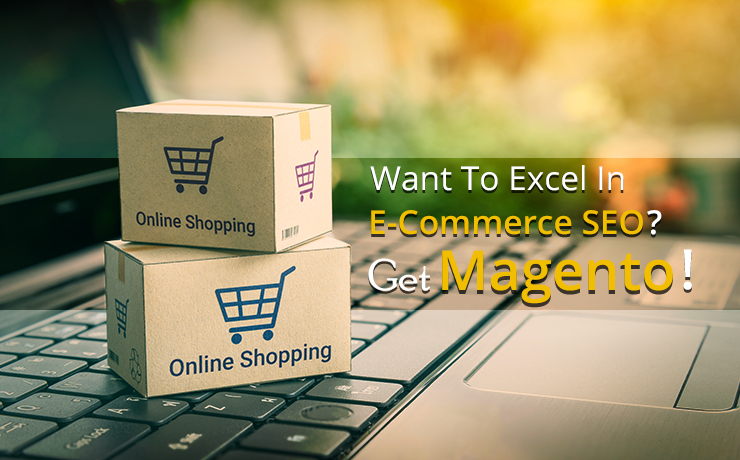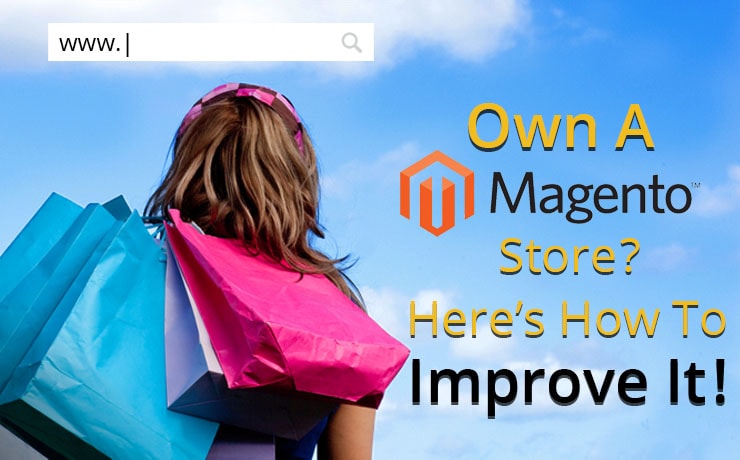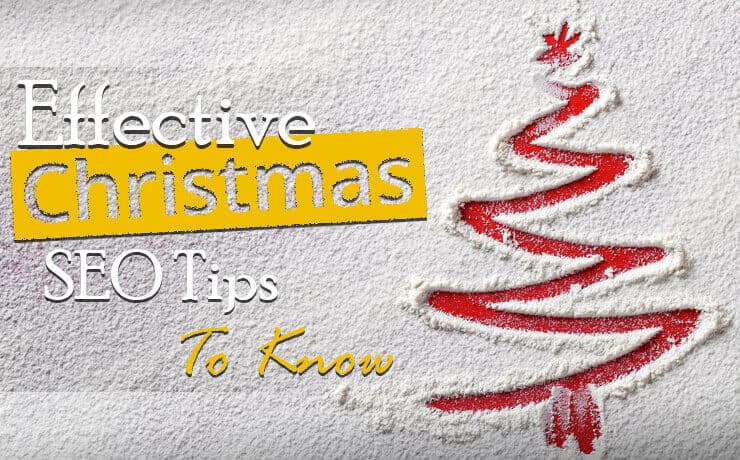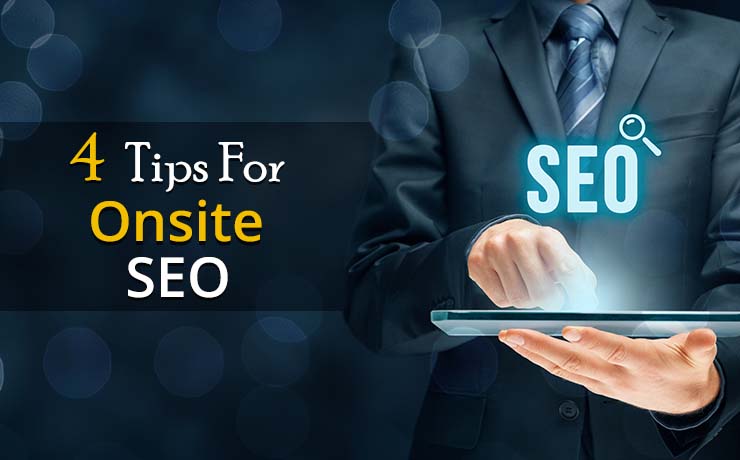Want To Excel In E-Commerce SEO? Get Magento!

Clement Foo
Senior Digital Content Manager

Long viewed as an e-commerce platform packed with features, Magento for e-commerce SEO is among the top three platform choices for many of today’s biggest retail companies. Magento has grown exponentially in popularity thanks to its versatility. It is now used in 16% of the top websites and 28% of websites across the net, in general.
What draws e-commerce brands? Answer: customization. But there’s more. To help ensure your store ranks high in organic search engines, Magento is loaded with features and resources. What’s more, because key elements aren’t sacrificed in favor of SEO, Magento is the best platform for e-commerce SEO.
Is all of this really important? Yes, because, on your ability to control your visibility and optimization, it can all have a significant impact. It may also create a headache for customers by tampering with your user experience.
With Magento, however, those problems won’t arise.
Page Titles
At the top of your page, in the tab, page titles are the texts that appear. When a customer is looking for products, title text is visible in the search results and used for defining bookmarks when a user saves it. So, independent page title creation can have a significant impact on “winning the click” over other search results products and have an impact on SEO.
Different from other platforms that use the category or product name to automatically generate page titles, you’re given more flexibility by Magento. This allows, on more than just your homepage, for independent page titles.
Links for Navigation
Throughout your sites, the text links that appear for your categories and products are referred to as navigation links. This is particularly applicable in menus. These links are automatically generated by a number of e-commerce platforms based on the product category or product name. It can be difficult to change them and, depending on the platform you use, may not be changeable at all.
On navigation links, however, you have complete control through Magento. From any SEO standpoint, this is preferable. For any link generated on your site, you want to have the control over anchor text.
H1 Tags
On any webpage, the most notable content is the H1 tag. For the user, it is an optimization. SEO has long been used for searches and is now optimized for the user. As a rank factor, the H1 tag still has significant weight despite countless changes as to the ranking of sites.
This is why, for their precise content, a significant amount of time is spent crafting the perfect H1 tag by marketers.
Imagine an e-commerce retailer’s frustration when, for their product pages, H1 tags are automatically generated yet not changeable at a simple level. Fortunately, to customize the H1 tag, Magento’s platform can be set up. This means, if you desire, you can make it different than the product name.
Load Times Are Faster
Site speed matters when it comes to SEO. Customers don’t want to wait for loading content in a world where e-commerce is constantly leaning toward mobile. As a matter of fact, a 7% reduction in conversions can be caused by a mere one second delay in a page load time.
For this reason, as a factor for determining search rank, Google includes site load times.
Fortunately, a number of configuration adjustments and options are offered by Magento. This can make your site load faster and give you a huge performance boost. With the configuration settings of Magento, numerous features can be accessed. This makes optimization even easier.
Aside from customization, the architecture of Magento is designed for heavy traffic handling. To optimize system performance, it uses a performance toolkit, making it an easier process. It reduces the server load and speeds up the loading of pages. Against faster speeds and server loads, this level of reliability is a big reason why some of today’s top Internet retailers have chosen Magento.
Content Management – Integrated Content Pages
A major ranking factor is the quality and number of links pointing to your web site. In SEO, a top priority has always been organic link building. Unfortunately, few brands have products so interesting and newsworthy they generate other sources’ direct links, even though the e-commerce sites might be filled with good content.
Now, to the content and quality articles you share in your blog, you can attract a wealth of links. But, when properly optimized, each of those articles – in an organic search – will rank well. This is only going to happen, however, if you are using an e-commerce platform that possesses the ability for you to create engaging, topical, shareable content.
Rather than limiting you to specific extensions or making you use prebuilt CMS functions; Magento’s open source nature means you won’t have to procure any additional costs or update your service when a custom solution or third-party solution is built from scratch. This makes it easier when, as part of your marketing, you want to make blogging a regular addition.
URLs
It is not at all unusual for the same product to be listed under two separate URLs, even within one e-commerce store. The content on the page will be the same, even though the two URLs should look unique. As an example, under “home and garden” and under “outdoor furniture” you may see “patio furniture” listed.
This might appear as duplicate content to Google. In search results, it might prevent either page from a good ranking. In fact, Google could actually penalize a site if there is a significant amount of duplicate content.
You should use canonical URLs as part of your SEO strategy. This tells search engines which content is an original page, which is a duplicate, and where traffic should be redirected. Conical URLs point search engines toward the best option to show the user or the version of the content most likely to be original.
One can only imagine how, from an SEO standpoint, multiple variance and multiple configurable products could quickly lead into split page traffic and a labyrinth of dead ends. For e-commerce SEO, Magento wins out here as well. To appear on product and category pages, it lets you set up a canonical tag in the configuration section using the admin panel belonging to Magento. In hierarchal product URLs, Magento 2.0 uses the canonical tag automatically.
By now you can see – primarily because of its level of customization and open-source nature – the leading e-commerce platform for SEO is Magento. With their off-page and-on page technical optimization, brands and developers now have more control. Organic visibility can be maximized.
What’s more, the highest level of control over user experience is allowed by this level of customization. Customers can now be provided a pleasant navigation and shopping experience. Additionally, they are nowhere near as likely to bail out as customers were in the past. If you need help with website design, SEO, PPC, digital marketing, and more, contact the professionals at SmartSites. With SEO services built for long-term success, you can outsmart your competition. Our proven SEO delivers you more customers, more traffic, and more rankings. With our powerful SEO agency services, within six months, you may be able to double your traffic!
 Free
Consultation
Free
Consultation Free
Google Ads Audit
Free
Google Ads Audit







